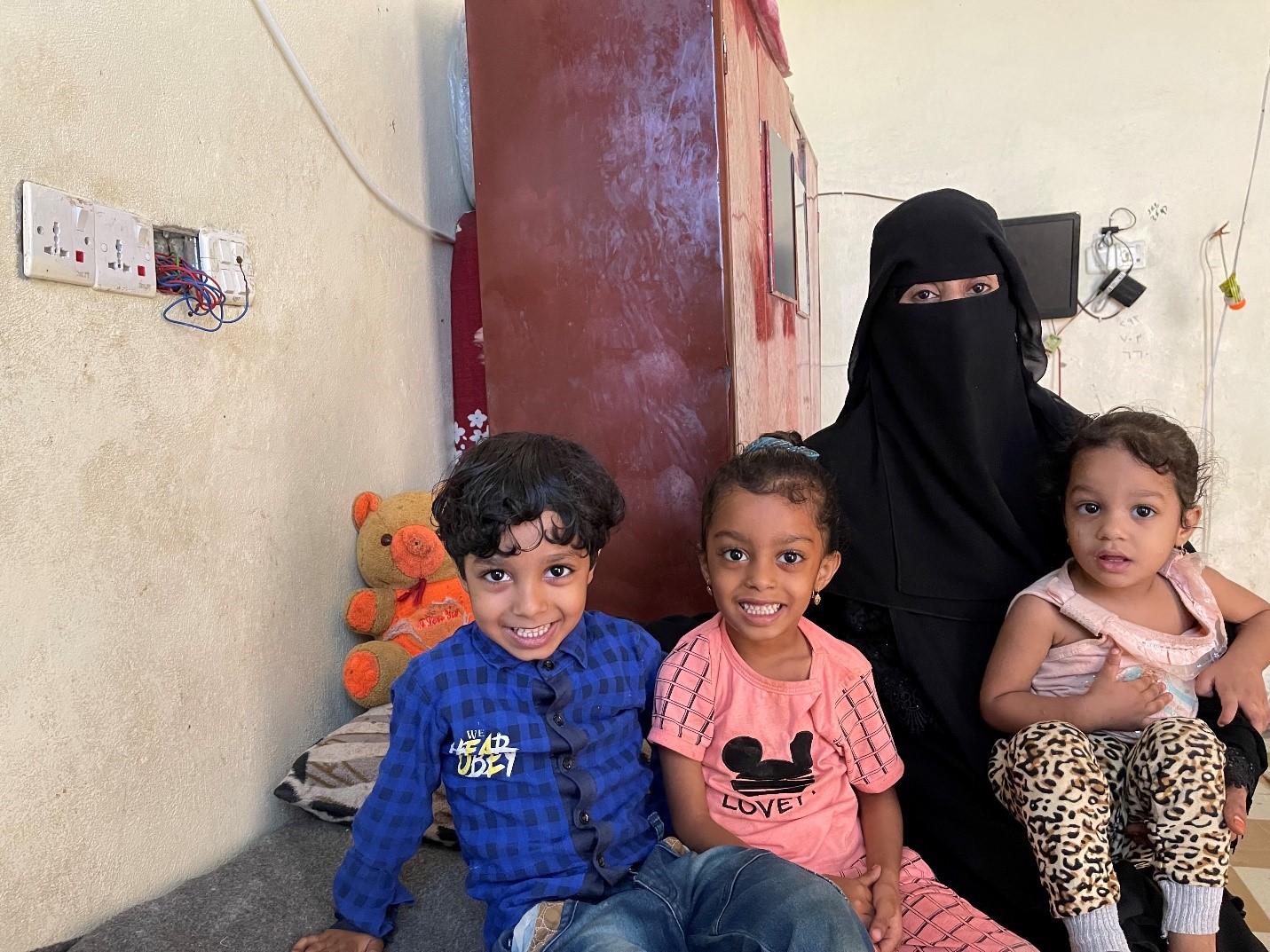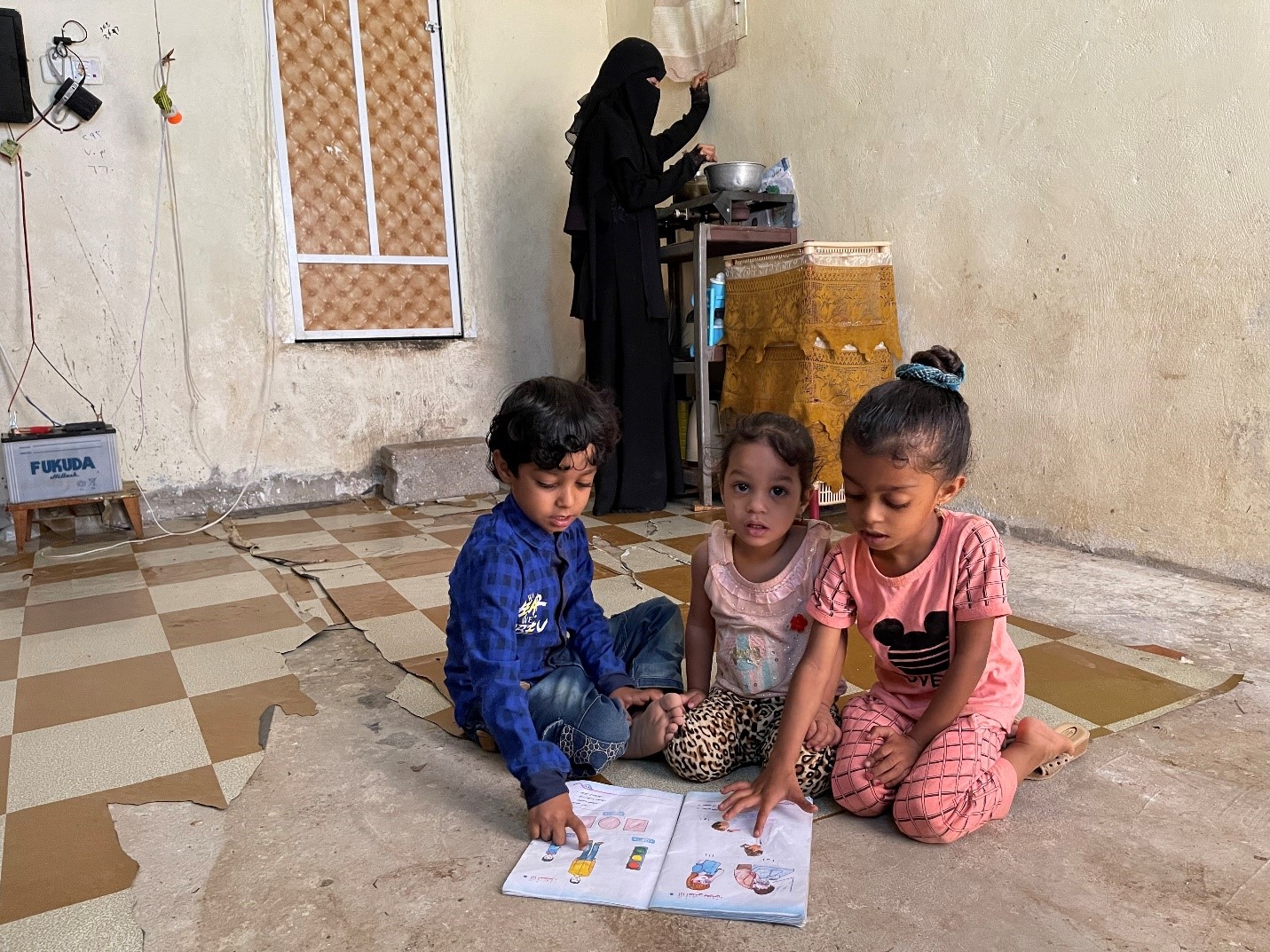After nearly seven years of conflict, according to the 2021 Yemen Humanitarian Needs Overview, a total of nearly 21 million Yemenis people are in need of humanitarian assistance. This constitutes two-thirds of the population including 22 per cent of whom are women and over half are children. The UN is once again warning of catastrophic levels of food insecurity and dire malnutrition for more than half of Yemenis, with five million people being one step away from famine and ten million more being right behind them.
Summer, a 22-year-old mother of four children, fled from Alhakom village of Taiz governorate to Taiz city due to the conflict eruption in 2017. “Our village was bombed and my house was destroyed by the shells. We were terrified and were forced to flee looking for safety, leaving everything behind,” says Summer. In Taiz city they now live in a small room, which is not enough for her family but they feel safer for the time being.
Displacement raises many risks for families who have been forced to uproot their lives and flee. Leaving everything behind, they find themselves having to start afresh in an environment that is unfamiliar to them. Not being able to secure a source of income, many face food insecurity, finding they cannot provide for their families, resorting to making difficult decisions. “Somedays we have had to eat one or two meals. It would break my heart seeing my children crying because they haven’t had enough to eat,” Summer says.

